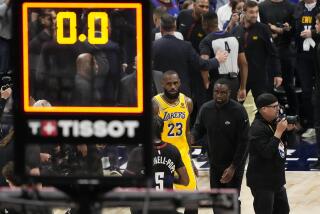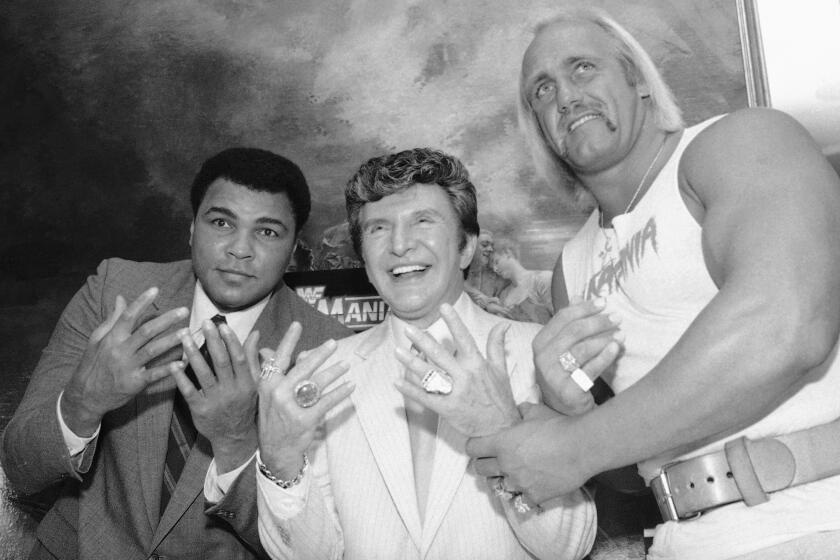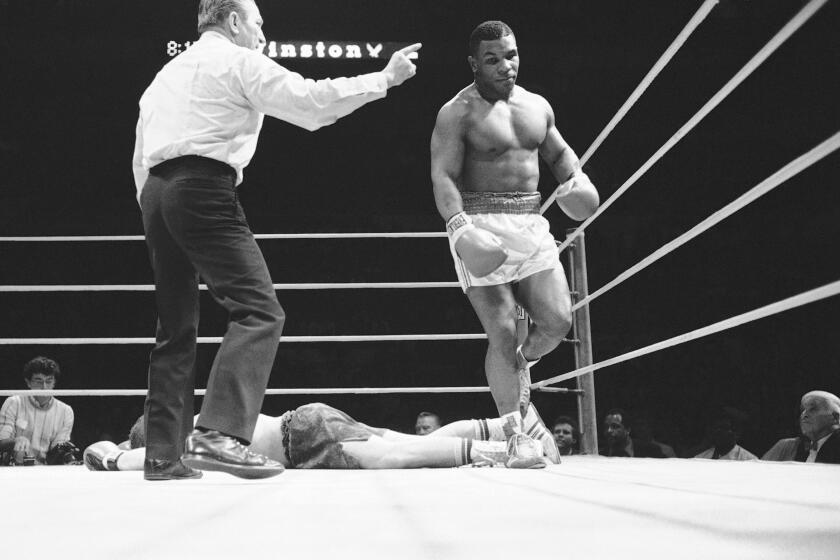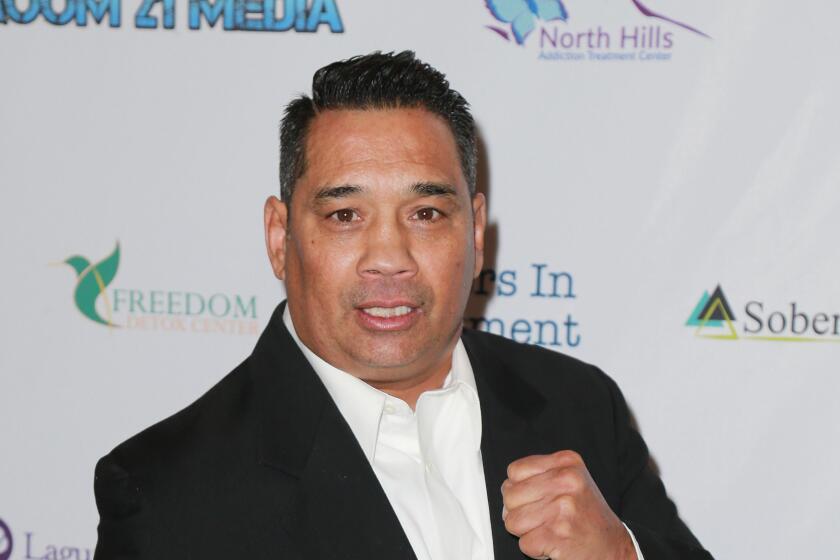HBO’s Jim Lampley captures essence of Muhammad Ali in ‘The Fight Game’ closing
Jim Lampley absorbed all of the reactions and scenes that followed Muhammad Ali’s June 3 death at age 74, and produced a fitting closing essay to his HBO show “The Fight Game,” on Tuesday.
Lampley, 30 years in as a Hall of Fame boxing broadcaster known for sharp recall, called upon Ali’s 1974 “Rumble in the Jungle” opponent George Foreman and Ali’s friend Jack Nicholson on the show, and included footage of the three-time heavyweight champion’s funeral service in Louisville, Ky., on Friday.
See the most-read stories this hour >>
His remarks were this:
“If you’ve watched ‘The Fight Game,’ you know the format calls for a closing comment. It’s a challenge. How do you sign off on what feels like an infinite subject? We come back to the metaphor that is the foundation of this show: The reality that for all of us, in some way or another, life is a fight.
“Other sports complicate the metaphor with elaborate rules, conventions and equipment, all the elements that identify them as ‘games.’ People play games, on fields or courts or tracks. But though the fight game is presented as a sport, you don’t play it. You fight for your life.
“That inescapable reality, instantly identifiable to any 10-year-old watching a boxing match for the first time, is at the heart of the unique social significance of fighters. It’s why Joe Louis’ knockout win over Max Schmeling produced a far deeper and more explosive anti-Hitler catharsis than did Jesse Owens’ four gold medals in Berlin.
“It’s why the best fighter in the world at any given moment is at or near the top of the athletic wage scale. Invariably. The potential audience, as Muhammad Ali grasped in an unprecedented way, is every single person on the planet.
“So the story of how a rambunctiously playful Louisville kid became the most socially significant athlete of all time begins with one unique identity platform: He didn’t play a game. And his extraordinary will to fight in the ring was mirrored by an even greater will to fight outside the ring for that which he believed to be right, regardless of whether it was popular.
“Instinct tells us we may never see another public figure from the sports world whose impact and legacy will equal that of Muhammad Ali. But experience makes clear that if somehow that person emerges to affect people’s emotions in the same way, he ... or she ... will be a fighter.
“The simplicity of their pursuit, and the risks they take to maximize it, give them the inside track to our hearts. And for that reason, as long as men walk on this planet, people will fight each other for money and identity and freedom, and the legend will be shared of a man named Muhammad Ali.”
MORE FROM SPORTS
Rio Games have their share of problems, just as other Olympics did
Randy Carlyle is an outstanding bench coach, and that’s why he’s back with the Ducks
Pressure nothing new for U.S. in Copa America
More to Read
Get our high school sports newsletter
Prep Rally is devoted to the SoCal high school sports experience, bringing you scores, stories and a behind-the-scenes look at what makes prep sports so popular.
You may occasionally receive promotional content from the Los Angeles Times.







